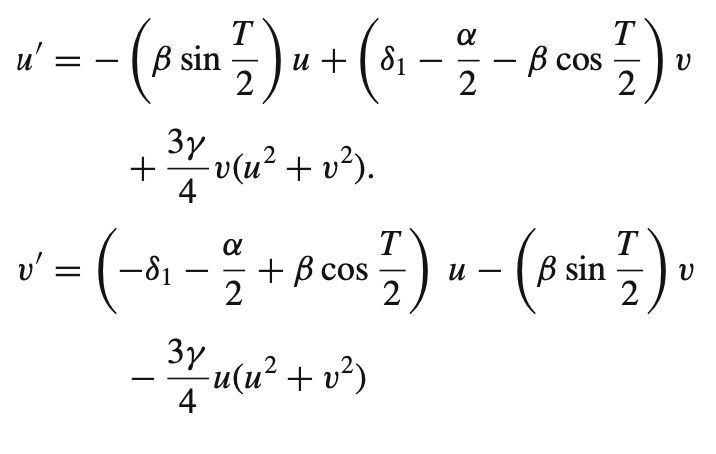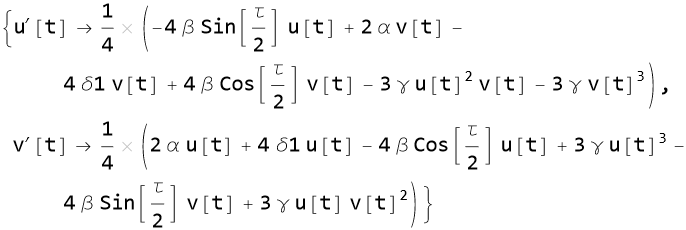I am trying to convert the following system of equations from polar coordinates to rectangular coordinates. (A,phi)->(u,v)
{Derivative[1][A][t] == -A β Sin[τ/2] +
1/2 A α Sin[2 ϕ],
Derivative[1][ϕ][t] == (3 A^2 γ)/
4 + δ1 - β Cos[τ/2] + 1/2 α Cos[2 ϕ]}
I am trying to reproduce the attached:
Rectangular form:



